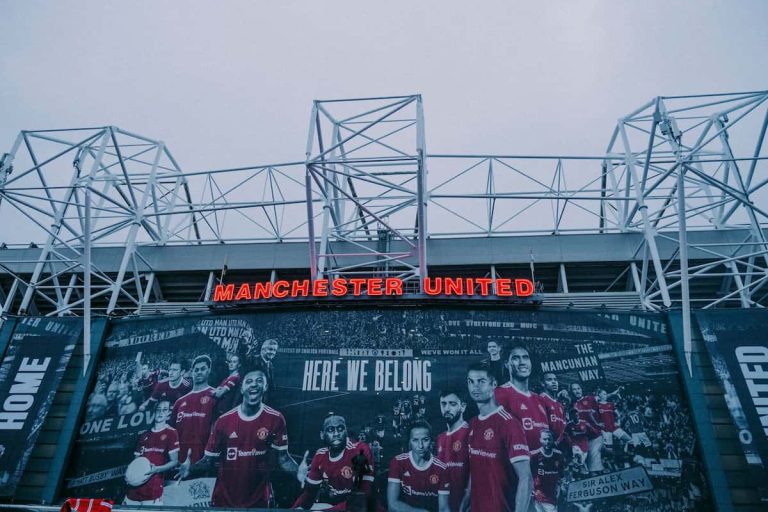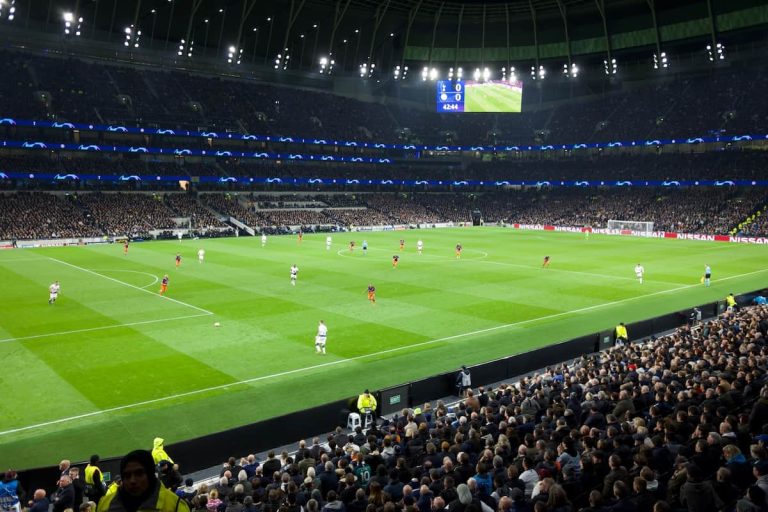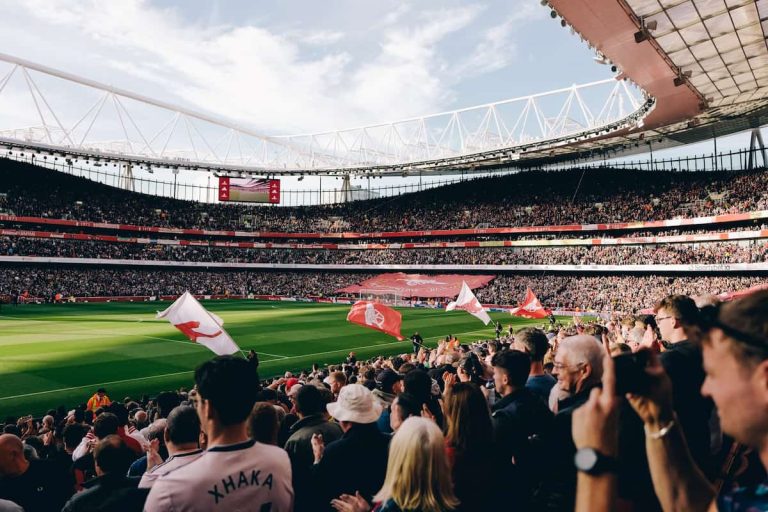Why Doesn’t MLS Have Relegation?

Since its full introduction as the U.S. exclusive Division 1 soccer league, Major League Soccer (MLS) has adopted a closed league model, meaning teams can’t be promoted or relegated. But why doesn’t U.S. soccer have relegation or promotion? In this article, we discuss the age of MLS, the NASL, levels of investment and more.
If you’re looking to learn all about this topic, we recommend reading on.
Table of Contents
Why Doesn’t MLS Have Relegation?
MLS doesn’t have relegation because it is a relatively new competition, there is a high level of investment that needs protecting, as well as it operating with a closed league model in line with other major American sports.
What Is a Closed League Model?
A closed league model is a sporting league whereby the identity of the teams competing doesn’t change year to year based on performance, i.e. no promotion or relegation takes place.
MLS operates with a closed league model, and all the initial investors in the league were willing to invest under these conditions. This is mainly because their investment is relatively safe if the possibility of MLS relegation doesn’t exist.
Reasons Why MLS Doesn’t Have Relegation
Now let’s explore the reasons why the MLS doesn’t have relegation, these include the age of MLS, level of investment, weak infrastructure and more.
The Age of MLS
All things considered, the MLS is a relatively new competition. After winning the right to host the 1994 World Cup, the United States promised to create a Division 1 professional soccer league, and U.S. Soccer selected Major League Professional Soccer to be the primary U.S. division. The league was then renamed Major League Soccer in 1995 when it was formed as a limited company.
This means that MLS is approaching 20 years old, and in comparison to other major divisions such as Premier League, La Liga, Bundesliga, Serie A and Ligue 1, this makes MLS a baby in terms of age.
As it is still in its infancy, the division is still expanding, and as of July 2023, there are 29 teams split across two divisions (Eastern and Western Conference). The continued expansion of the division means that relegation and promotion hasn’t been implemented, as they want to create a stable base for the U.S. top flight before involving lower U.S. footballing tiers.
Level of Investment
Another reason why the MLS doesn’t have relegation or promotion is because of the level of investment put in by owners. When teams are added to the division, owners have to fork out significant sums of money, and this keeps increasing each year. In 2007, Toronto FC, one of the three Canadian sides in the MLS, paid $10 million to join whereas Charlotte FC paid £350 million to join in 2022.
If suddenly a newly entered team has to spend that much money just to compete, only to be potentially relegated in one year, the risk of an owner’s investment is high. The thought of playing in a lower division after putting in that much capital can put off new investors and makes expanding the division a lot harder.
Is Reflective of Other American Popular Sports
As American sports culture goes, MLS is operating in line with all other popular U.S. sports including Baseball (MLB), American Football (NFL) and Basketball (NBA) by adopting a closed league model.
If it’s something that has worked for many years in these sports, why would America make an exception for soccer? American fans are accustomed to this style of competition, unlike the majority of the world, therefore they don’t have an issue with it, meaning that it is an effective set-up for the market.
Weak Infrastructure
As we discussed, the level of investment is high to enter a team into the MLS, and this means that introducing relegation or promotion could be a disaster due to a weak infrastructure. Soccer teams in the NASL and USL Pro League would find it very hard to match the investment of teams in MLS.
You could argue that this is the case for teams who get promoted from the Championship to the Premier League, however schemes like parachute payments and promotion bonuses are in place to help facilitate those changes and make things “fairer”. It appears that it’s just a little too early for these types of schemes to be implemented in America.
Learning From the Demise of the NASL
Perhaps one of the clearest reasons why MLS relegation and promotion doesn’t exist right now is because of the demise of the North American Soccer League (NASL). The NASL existed from 1968 to 1984, lasting just 16 years, and collapsed due to financial reasons. This was down to a combination of trying to expand the league too quickly, player salaries increasing rapidly, small broadcasting deals and the overall U.S. unemployment level increasing.
If MLS is taking a precautionary approach to establishing and maintaining their league because of lessons learned in the past, then fair play. It’s clear that you need to create a stable foundation to operate from before you start introducing the idea of relegation and promotion.
Reasons Why MLS Relegation Should Exist
Now let’s have a look at the reasons why promotion to the MLS and relegation from it should exist. Some great reasons for it to be implemented are increased competitiveness, increased entertainment for fans, more transfer activity and to accommodate lower U.S. soccer divisions.
Increased Competitiveness
The first key reason why MLS relegation should exist is because it’ll increase competitiveness in both its divisions (Eastern and Western Conference). If teams are looking like they’ll finish towards the bottom of the table, they’ll feel comfortable not being as competitive because the threat of relegation doesn’t exist. Teams can happily coast to the end of the season in its current format.
If promotion to the MLS existed, teams in lower divisions would have more incentive to try and finish in the top places of the league, too. Furthermore, competitiveness is key to increasing the overall standard of football, which can only benefit MLS if they want to compete with other major football leagues.
Increased Entertainment for Fans
The chances of MLS relegation would also increase entertainment for soccer fans in the U.S. When teams towards the bottom of the league are threatened with relegation, relegation dogfights can be extremely entertaining. Every match counts for something, and this means that the players give absolutely everything, running for every loose ball.
Without relegation, players won’t try as hard in matches, as they have nothing to play for except their own place in the side. It’s clear looking at other domestic leagues how exciting the concept of promotion and relegation can be, and American soccer fans could look forward to this in the future.
More Transfer Activity
In order to remain competitive, MLS sides would be encouraged to make more transfers during the transfer window if relegation and promotion existed. Sides that aren’t threatened with relegation might not prioritise transfers as much as teams in other leagues who are threatened with relegation.
Signing and selling players can be a further source of entertainment for fans, too, learning which players might play for their club in the next season. Overall, more transfer activity would be great for MLS’s PR. When Inter Miami signed Lionel Messi, MLS had the whole world following the coverage, and this demonstrated the power of high profile signings.
Accommodate Lower U.S. Soccer Divisions
The final key reason to consider relegation from the MLS and promotion to it is in order to accommodate lower U.S. soccer divisions. Here is how the U.S. soccer pyramid currently operates:
| Division | League | No. of Teams | First Season |
| 1 | Major League Soccer | 29 | 1996 |
| 2 | USL Championship | 24 | 2011 |
| 3 | USL League One | 12 | 2019 |
| 3 | National Independent Soccer Association | 9 | 2019/20 |
| 3 | MLS Next Pro | 27 | 2022 |
If promotion and relegation was introduced to the U.S. footballing pyramid, theoretically a team from one of the third divisions could get promoted twice and play in the MLS, which is incredibly exciting. Take, for example, Brentford, who rose from League Two in the English football pyramid to the Premier League in 9 years under the ownership of Matthew Benham.
Without promotion or relegation, Brentford would be stuck in League 2. The threat of relegation and the potential of promotion is what makes football exciting, and has facilitated amazing stories for many clubs across the world. Accommodating lower U.S. soccer divisions will be a smart move by the MLS when the time is right.
Conclusion
Why doesn’t MLS have relegation or promotion? It’s unclear whether MLS relegation will be present in U.S. soccer in the future, due to the nature of other popular American sports continuing to operate with a closed league model. There are, however, some clear benefits as to why America’s top flight should consider it, including more excitement and competitiveness.
While the MLS is still building a strong foundation to work from, promotion and relegation in and out of the league seems risky, especially when analysing the demise of the NASL. Will we see these systems be adopted by American soccer in the future? We certainly hope so!
Related Articles
- Why Did Messi Go to Inter Miami?
- How Good Was David Beckham?
- Is the MLS a Retirement League?
- The 10 Top MLS Salaries in 2023
- 12 of the Best American Soccer Players in Europe
Frequently Asked Questions
Will the MLS Stop at 30 Teams?
In 2023, MLS commissioner Don Garber claimed that there was “no reason to not go larger” when asked whether the MLS would stop at 30 teams when the 30th franchise (San Diego) was announced. With other major leagues in North America, the US, and Canada being 30 or more teams, it suggests that the MLS will continue to grow past this figure.
Is Las Vegas Getting an MLS Team?
In May 2023, it was announced that San Diego would have the 30th franchise team in MLS, beating Las Vegas. Las Vegas had been favourites to get the 30th spot, but unfortunately missed out. This isn’t to say that they won’t be able to enter a team in the future, though, as it’s likely that MLS will look to keep expanding.






